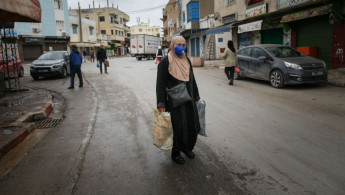"The first wave of the epidemic (March to June) resulted in the loss of 165,000 jobs," Bechir Boujday, a member of the board of the employers' federation UTICA, told AFP on Friday night.
A decade on from a revolution that toppled the old regime, leaders are struggling to meet the expectations of the people, who complain they have seen little increase in living standards.
Unemployment rose three points to 18 percent, with predictions it could be over 20 percent by the end of the year, according to a joint study by the government and the United Nations.
Nearly a third of small to medium sized businesses are "threatened with bankruptcy", Boujday said.
Tunisia, which was already battling high unemployment before the start of the pandemic, has seen a record shrinking of its economy.
GDP was cut by 21.6 percent in the second quarter of 2020, an "unprecedented contraction of economic activity", the National Institute of Statistics said.
Read also: Tunisia bets on non-partisan government to break political deadlock
The key tourist industry has all but collapsed, with tourism income plunging 60 percent and swathes of hotels likely to close permanently, officials said last month.
Last month parliament approved a new technocratic government tasked with tackling deep social and economic woes in the North African country.
Tunisia, with a population of around 11 million, has recorded over 400 deaths from the novel coronavirus out of nearly 27,000 cases.
Earlier this month, authorities warned that hospitals were struggling to cope with an influx of Covid-19 patients.
A nighttime curfew around the capital Tunis began Thursday for 15 days.
Follow us Twitter and Instagram to stay connected





 Follow the Middle East's top stories in English at The New Arab on Google News
Follow the Middle East's top stories in English at The New Arab on Google News


